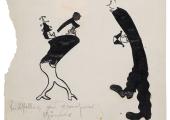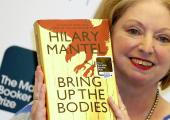★★★★★ AMALIE SMITH: THREAD RIPPER AI meets Penelope meets Ada Lovelace in this meditation on text, tissue and textile
AI meets Penelope meets Ada Lovelace in this meditation on text, tissue and textile
Sitting in the park on a hot summer’s day, life began to imitate art. I had been soaking up the sun’s now overpowering rays for over an hour and was beginning to feel its radiating effects.
Golden green filaments of grass moved back, the trees swayed in heady sympathetic succession; buzzing from the outside in, my body started to metabolise light at a speed my brain couldn’t fathom. My skin bubbled green, my tongue unfurled petals and my eyes sprouted luminous buds. I had become a plant – or so I felt – and the sun-soaked synthesis of my transformation was near complete.










